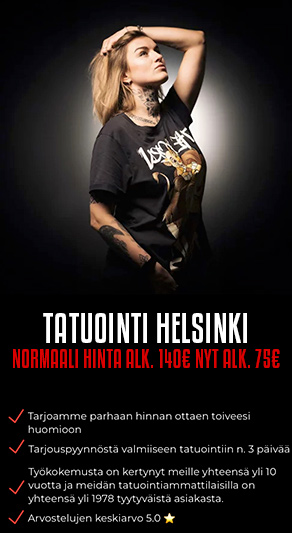The beginning of Russia’s invasion of Ukraine produced several pledges of cooperation on one side or the other of the conflict. No country was more effusive in its support for Russia than China, which said there would be “no limits” to its support. The limits to that support appear to be at hand, however. It took a while, but the pressure from the sanctions is mounting and having an impact on the Russian economy.
The Situation with China
In February alone, some of China’s biggest banks stopped doing business with Russia. On February 7, Chouzhou Commercial Bank, the main Chinese bank facilitating Russia’s imports,
stopped doing business with Russia. By February 21, three of China’s four largest banks—the Industrial and Commercial Bank of China (ICBC), the China Construction Bank, and the Bank of China—had
stopped doing business with sanctioned Russian institutions. More financial institutions will likely follow suit as new EU sanctions on Chinese companies helping Russia evade sanctions, prompted by the death of Alexei Navalny, were announced on February 24, 2024. These Chinese institutions have
accumulated vulnerabilities that expose them to the effects of sanctions.
China’s “no-limits” strategic partnership with Russia helped Putin weather the most strenuous months of the invasion, but on the second anniversary of the war, Xi Jinping’s rhetorical commitments appear to have run up against China’s broader national interests.
China’s economic growth is
plateauing,
unemployment is up, investment and exports are
down, and internal consumption is still low. China’s massive real estate and construction markets, which make up a quarter of the entire economy, are
rapidly deflating. Meanwhile, China’s debt burden is growing and is
already much larger than that of the United States. These issues may be
structural in nature and require liberalizing reforms that are not likely to be condoned by the Chinese Communist Party under Xi Jinping.
As a result, Russia’s big bet on China to replace the West as an economic partner and save it from sanctions looks increasingly unlikely to pay off.
Effects of Secondary Sanctions
The effects of secondary sanctions are also beginning to work their way through the Russian economy. Since the beginning of 2024, banks in
Turkey have severed
nearly all financial ties with Russia. The
UAE (which recently joined the BRICS) has similarly begun exiting the Russian market. Cyprus, once a safe haven for the Russian ultra-rich,
announced it would begin partnering with financial crimes specialists from the U.S. FBI to root out sanctions evasion.
Even India, which had been a major importer of cheap Russian crude oil since the start of the war, has now begun to reduce its imports owing to increasing cost, with January 2024 imports
down 35 percent from 2023’s peak.
Closing the Loopholes
Beginning in December 2023, the United States and the EU began taking aggressive action against non-Russian companies helping to facilitate sanctions evasion and providing Russia access to technology and materials that could be used for both civilian and military purposes. The most significant effort to clamp down on these loopholes came with the EU’s
twelfth package of sanctions on December 18, 2023, and with the Biden administration’s Executive Order on Taking Additional Steps With Respect to the Russian Federation’s Harmful Activities,
signed December 22, 2023.
The most recent EU sanctions, enacted in the aftermath of Navalny’s death, have also been global in scope,
targeting companies in such countries as Serbia, Thailand, Kazakhstan, and Sri Lanka. Several post-Soviet republics, including
Kazakhstan,
Uzbekistan, and
Kyrgyzstan, have agreed to enforce sanctions on Russia, although it remains unclear how vigorously they have done so.
China has also become entangled in the most recent round of sanctions, imposed by the U.S., for their continued dealings with Russia, to the
loud protests of the Chinese government.
Russia’s Financial Maneuvers
There are other potential signs that the Kremlin is bracing for trouble with the
revocation of the license of QIWI Bank, an entity that provides payment and financial services in Russia and CIS countries. The move, according to the Russian government’s
statements, appears to be an effort to keep money from fleeing the country. Such actions are even more alarming when viewed in the context of what appears to be increasingly elaborate
financial engineering performed to maintain the appearance of normalcy in major cities such as Moscow. Nevertheless, the
collapse of QIWI bank is estimated to have cost Russians upwards of 4 billion rubles.
These moves signal a discontinuity between the Kremlin’s
outward display of confidence, derived from a combination of recent if
minor battlefield victories and the
political chaos in the United States, and an underlying sense of insecurity. Renewed concerns about the health of the Russian economy in the run-up to the symbolic anniversary of the war and the Russian presidential election in mid-March could explain the
recent uptick in domestic repression and spending.
Russia has increased
spending on national projects and on promoting tourism—a fantasy under current conditions. Meanwhile, the state-owned space corporation Roscosmos has
announced that its Western customer base has dried up. Finally, China (and Europe) have
increased their purchases of gas from Qatar, another blow to Russia’s revenue stream and ability to circumvent sanctions.
Despite naysayers, the sanctions against Russia are working. Time and a firm application of pressure should see an even bigger impact on the Russian economy.



